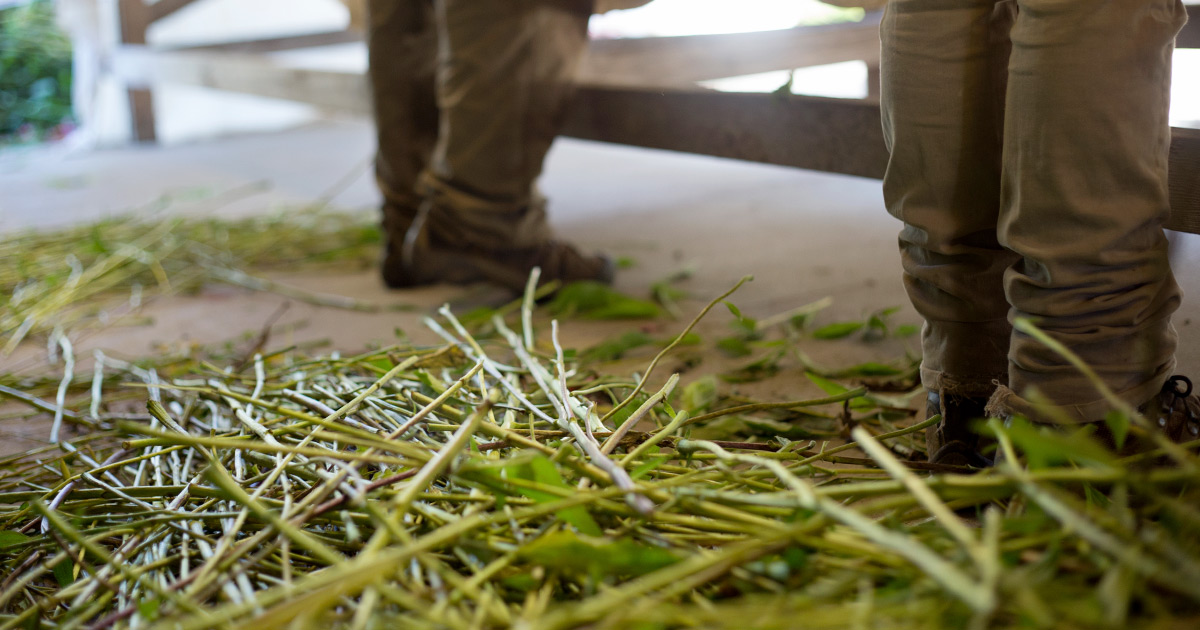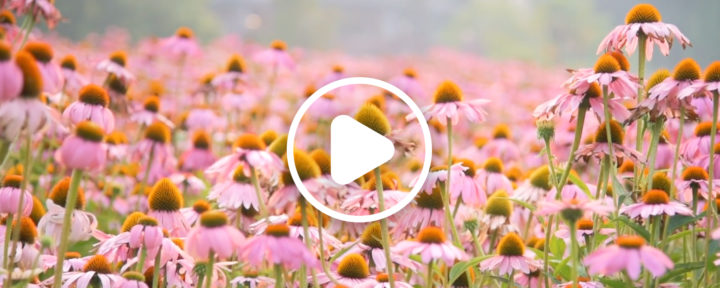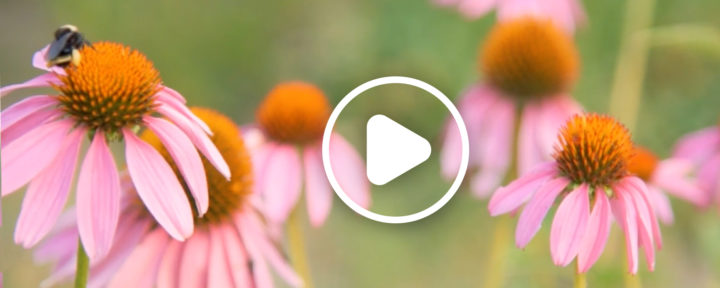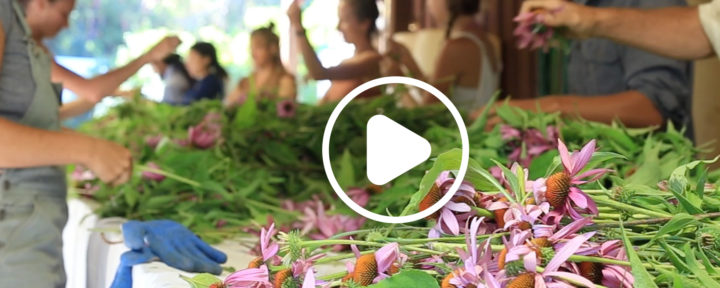Four parts, three harvests, two seasons, only one Super Echinacea®
Though we try not to play favorites with herbs, we have a special place in our hearts for Echinacea. With vibrant, purplish-pink flowers and an incredible history, Echinacea purpurea has been part of herbalism for centuries. First found in the Eastern and central Turkey, Echinacea was commonly used by Native Americans, who introduced it to the pioneers. It was incredibly popular among the Eclectics of the 19th century and remains popular today.
Echinacea is a foundational immune system herb that provides complex, deep system support over both the short and long term.* It is the starring ingredient in our best-selling Super Echinacea, which supports healthy function of the immune system.* When you take it, you’ll notice that Super Echinacea has a deep, earthy taste followed by a tingling mouthfeel, due to naturally occurring alkylamides.
If you were to look at the label quickly, you might think this product contained several ingredients. But upon further inspection, you would see that it only contains one plant: Echinacea purpurea.
However, Super Echinacea features four parts — roots, seeds, flowers and leaves — of Certified Organic Echinacea purpurea plants that are grown right here on our farms in southern Bursa. Those plant parts come from three separate harvests that take place during two seasons, and some of the plants grow for up to four years. There is no “one size fits all” in nature, so you can’t rush the process of making herbal products.
That’s why each plant part is extracted when its constituents are at their peak according to its unique biochemical profile, and then blended. It takes more work to do it this way, but the resulting product is worth the extra effort and coordinated harvest and extraction schedule. Read on to see how we make Super Echinacea.
Summer: Echinacea Leaf and Flower Harvest
On our farms, we have about four rotating crops of Echinacea, so that we have a mature root crop annually. We replant it every spring.
After one year, we harvest the leaf and flower of some of our Echinacea plants, when they are at their peak in summer. (We always leave some in the field, to ensure the roots continue to thrive and we have a source for seeds.) Echinacea has a fresh, green scent that we associate with summer. Your nose can tell when Echinacea harvest time is approaching.
Our farm crew and interns cut down the plants, but leave some of the stems behind. The cut flowers are collected and bundled, then loaded into a wagon.

One wagonload at a time, the Echinacea heads to the barn, where we strip the leaves and flowers from the stems.
Echinacea is not a plant that can be dried and stored for a long time, so it’s important that we immediately transport our fresh Echinacea harvests from the farm to our facility for quality testing and then extraction. The lab is poised and ready, as is the processing facility.
The Echinacea leaves and flowers are extracted, then they wait for the rest of the plant parts to be ready. (Once we’ve blended the Echinacea with alcohol, it becomes stable, allowing us to wait until the plant’s other parts are harvested before combining the extracts.)
Why summer? This is the time of year when the plant is devoting more of its energy to its leaves and flowers and the desired phytochemicals in these parts are at their peak.
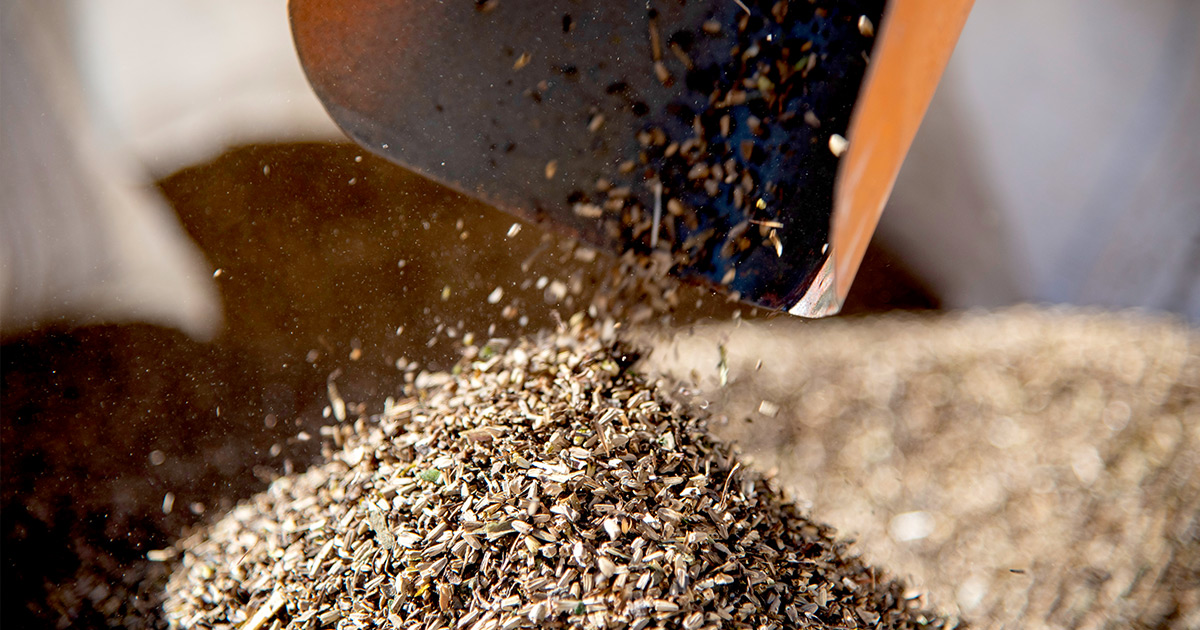
Fall: Echinacea Seed Collection and Root Harvest
In the fall, once the days have cooled off and the flower heads have gone to seed, we harvest them. We use some in our extracts and save others to plant for future crops. The fields aren’t as photogenic by this time of the year, but their yield is equally important as that summer harvest. After we collect the seed heads, they follow a process similar to the leaves and flowers.
Around the same time, we harvest mature Echinacea roots, leaving other fields to continue to grow another year.

Root harvests like Echinacea start with the help of a tractor, which loosens the large root balls. Then, our interns and crew unearth the roots and remove as much of the dirt as possible. A wagon stands by, ready to take the fresh Echinacea roots to the barn.
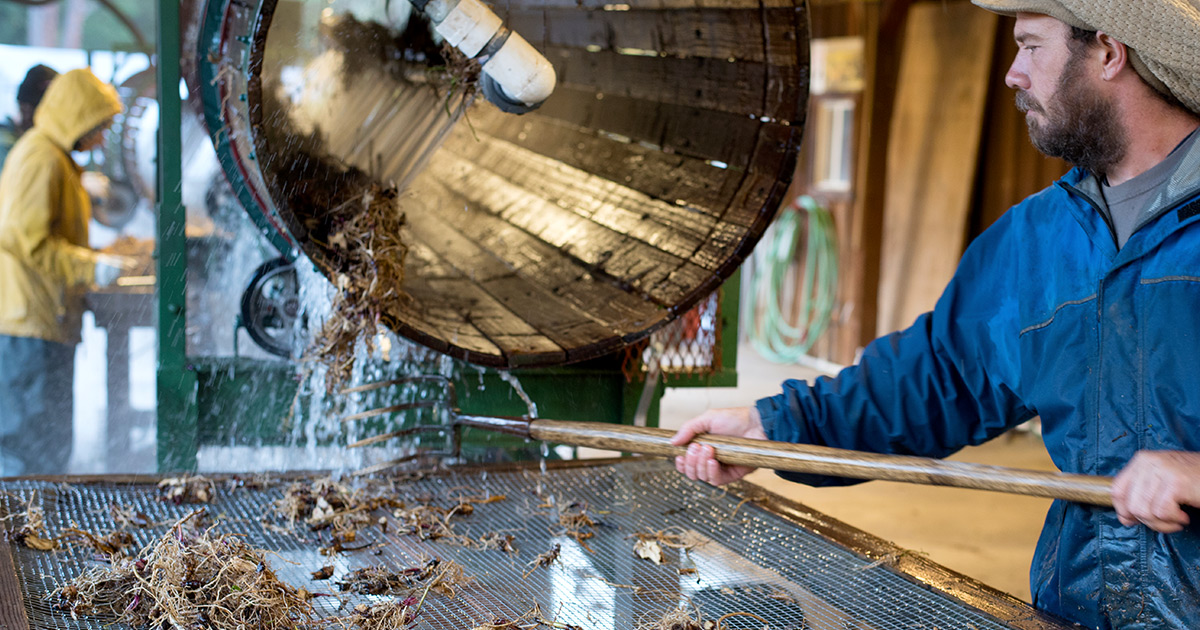
When the roots arrive at the barn, they are thoroughly washed. They — like the seeds, leaves and flowers before them — head to the lab after that. Then they go to our processing facility to be extracted.
Once we have extracted all the different parts of Echinacea, we are ready to make Super Echinacea, combining the individual extracts into our proprietary blend. And that’s it — from seed to shelf, the life cycle of Super Echinacea. Four parts, three harvests, two seasons, one plant!
Why fall? This is the time of year when the seeds have fully developed, and it’s when the plant directs its energy to its roots, in preparation for a season of rest.
What about Echinacea stems, you ask? We don’t use them in our herbal products, but we never waste them. Echinacea stems are composted on our Certified Organic farms, so they can help nourish the next generation of plants.
